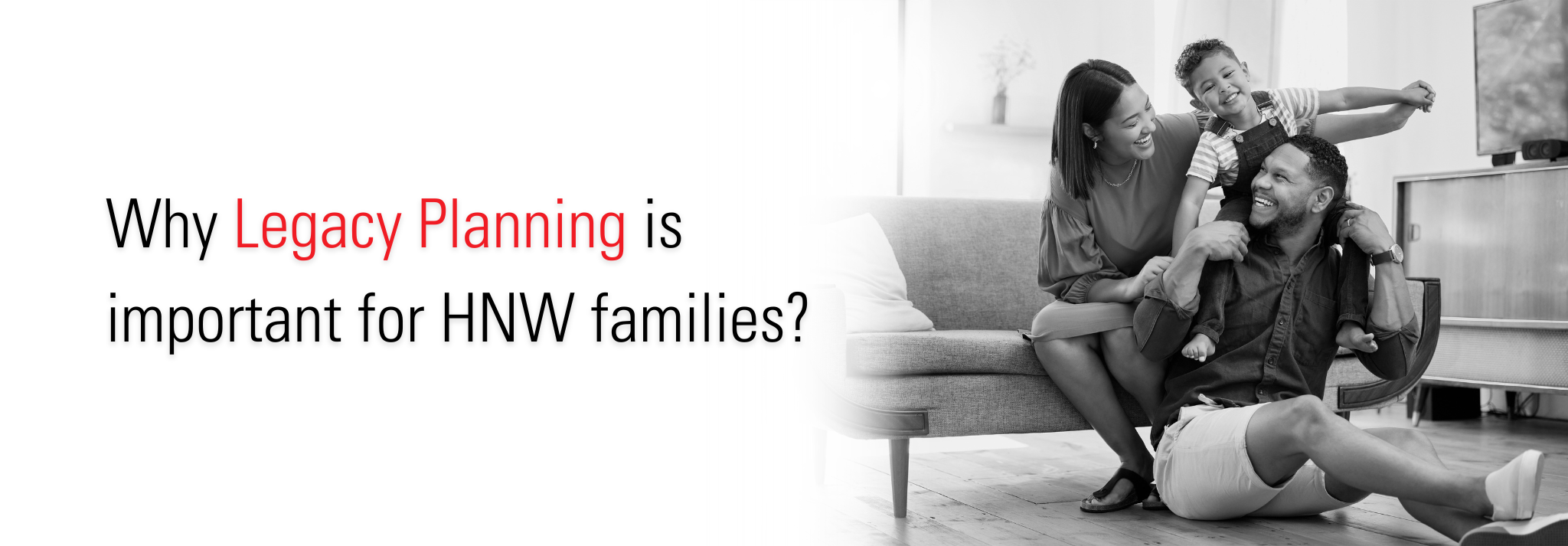Legacy planning, often interchanged with estate planning, is the process of making arrangements for equitable, just, and financially beneficial bequeathing of one’s total assets to the heirs or preferred inheritors. Though a seemingly straightforward process, it is riddled with complexities, including but not limited to various taxes, intestacy laws, probate proceedings, and potential conflicts between beneficiaries. Such issues are becoming commonplace in HNW families, where the stakes tend to be high. The status quo in the Middle East is no different.
As it turns out, out of 300 established HNWIs, only 24% have a full-fledged estate plan place in place. While 27% of respondents have not created a plan at all, a third (about 30%) have it just for some of their assets. These statistics do not paint a promising picture, especially in light of the region undergoing a transition in terms of globalization, the entry of the next generation into the fray, and evolving opportunities for wealth preservation and creation. Under this scenario, the importance of legacy planning can be explained as follows.
Legacy dies with discord.
A family office built over generations of painstaking efforts can become the subject of a legal dispute after the death of a patriarch/matriarch. That is often the case with intestacy — a situation in which someone dies without a valid will or other legally binding declaration. When the estate falls at the mercy of local intestacy laws, the legal process can get tedious, expensive, and ugly for all parties involved. The public trials can portray the HNW families in a bad light, undermining the legacy of the benefactor.
However, inheritance is only a part of legacy planning. A good legacy is a subjective idea with different considerations, including but not limited to protecting the family’s reputation, ensuring its sustenance and growth, and minimizing the scope for future problems. So, one can start by inculcating strong family values and financial discipline in potential heirs. Such practices can become the bedrock to continue and build the family’s legacy. Over the course of heirs’ development, a benefactor must identify potential obstacles and factor them in before drafting a will.
At times, all biological children may not be entitled to an equal share in the estate; someone could have special needs, someone may not be the right fit for a specific business, and another may have prodigal habits. Such considerations are vital in deciding the executor or trustee of the estate or the living trust. Also, the right person has to be given a power of attorney well in advance for cases of “incapacitation” — a situation where the benefactor becomes incapable of making logical decisions due to mental or physical challenges.
A lack of financial strategy can eat away at the estate.
The inheritance considerations mentioned above must be cushioned with financial strategies to address the tax implications. Different jurisdictions in the Middle East have different tax regimes for estate distribution. Such can include wealth transfer taxes, gift taxes, and, in special cases, generation-skipping transfer taxes. Though some are unavoidable, most taxes can be minimized through financial strategies implemented ahead of time. Typically, HNW families liaise with financial advisors to undertake a few measures, such as creating private trusts and procuring insurance products.
Advisors tend to reduce clients’ “taxable” wealth by transferring a sizable portion of the assets to a charitable lead trust (CLT), charitable remainder trust (CRT), etc. In most regimes and circumstances, charity is exempted from taxation, giving trustees strategic access to capital. At the same time, charitable trusts are a viable way for benefactors to ensure their goodwill outlives them and continues to shape their legacy. In the Middle East, such private entities can also be formed in financial freezones, such as the Dubai International Financial Centre and Abu Dhabi Global Market, which characterize opportunities for more wealth creation.
Likewise, it is advisable for HNW families, especially benefactors, to attain high-value life insurance products. They accrue significant values over time and, following the death of the policyholder (preferably the benefactor), lead to a hefty payout, which can be used to account for the taxes incurred in estate distribution, legal fees, etc. Such a safety net is important in the context of HNW family offices, whose holdings most often include illiquid assets as they appreciate more in valuation over time. Good life insurance will ensure the lack of liquidity doesn’t become an issue during asset distribution and transfer. Such strategies, when pursued timely and under the guidance of financial advisors, can help leave an untarnished and long-lasting legacy.





